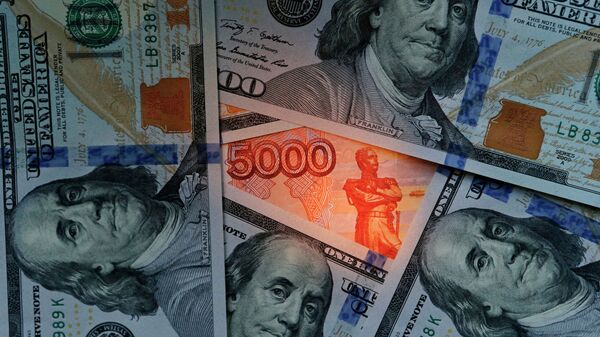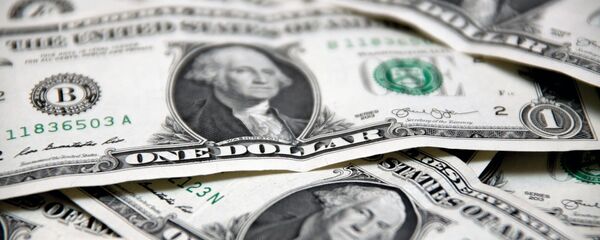Radio Sputnik discussed the Russian government’s plan to de-dollarize the country’s economy with Dr. Yaroslav Lissovolik, chief economist at the Eurasian Development Bank and program director of the Valdai Discussion Club.
Sputnik: Russian President Vladimir Putin has said that Washington’s sanctions policy undermines the dollar’s credibility as a reserve currency. He also said that the US was “biting the hand that feeds them.” What are your thoughts on this?
Yaroslav Lissovolik: I think that’s absolutely correct in the sense that the threat of restrictions and sanctions essentially raises the economic costs of transactions in dollars. In economic terms, there are barriers and costs to using the dollar and, accordingly, various sanctions and restrictions lead to countries looking for alternative currencies as a way to reduce these risks and the potential transaction costs associated with the use of dollar.
READ MORE: China Reportedly Mulls Second Dollar-Bond Sale in 2018 as Trade Tensions Simmer
Sputnik: The Russian government has been working on a draft project aimed at de-dollarization of the Russian economy based on the proposals of Russia’s VTB Bank President Andrey Kostin. In your opinion, are these proposals coming right on time?
Sputnik: What could some of the benefits that Russia will have after switching to other currencies, such as the euro, yuan or ruble, in international trade?
Yaroslav Lissovolik: One of them is the reduced risk of restrictions associated with the use of the dollar, that’s the immediate risk that Russia is trying to deal with. The other one is that with the greater use of national currencies, including the ruble, there is greater possibility to use the ruble as the medium of exchange that could potentially lead to the ruble gaining greater weight as a regional reserve currency, at least for the immediate future, as a reserve currency for the near-abroad. Another benefit that I see, a very important one, is that if, indeed, the role of the ruble in international transactions is set to increase, that will necessitate a change in the strategy of the Russian government vis-à-vis the ruble and its stability. We have seen a series of depreciations of the ruble in the past several years, and in order to make sure that the ruble is a more secure reserve currency in the future, the government will need to abandon the weak ruble policy and place greater emphasis on ruble stability, which has its benefits for the wider strata of the population.
READ MORE: De-Dollarization: Top 5 States Drifting Away From Greenback
Sputnik: What kind of consequences could there be in case Russia adopts its de-dollarization strategy?
Sputnik: We’ve also seen Iran and Turkey gradually abandoning the dollar in trade because of sanctions. In your view, could we see a domino effect?
Yaroslav Lissovolik: This is something that we’re increasingly seeing and this is not just with Iran, Russia and countries that were affected by sanctions. We’re even seeing declarations made by representatives of the EU regarding the possibility of using this tremendous reserve of de-dollarization in the world economy in order to advance the euro as a more prominent player in global financial transactions. I think that different players and different countries see the possibility and potential for de-dollarization, and once they get their share of the pie, in terms of using their currencies to undertake international transactions to occupy a greater share of the world’s financial transactions.
The views and opinions expressed in this article are solely those of the speaker and do not necessarily reflect Sputnik's position.




